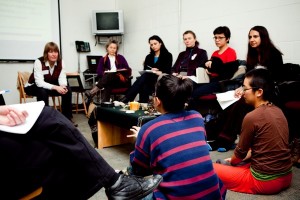“The existence of a multiplicity of knowledges is as important for the state and health
of the individual knowledges and human knowledge as a whole, as biodiversity is important for the environment ….Multiple knowledges provide the basis and hope for inter-civilizational succession and therefore vaccinate humanity against the possibility of total destruction” (Paulo Wangoola).

- KIN Workshop, Toronto
Human Beings have been innovating since time immemorial. Our innate creativity and
inventiveness is manifest as people from all walks of life respond to the issues of our times. We hear a lot about the need to build social and ecological resilience within our communities, institutions and ecosystems; particularly as this applies to including disfranchised populations in the equation as active participants. The importance of ‘rapid response’ and ‘scaling up’ innovations is also often emphasized. There is no doubt that these are all important actions…..
But surely something is missing here? Perhaps this something is very foundational, more to do with the depths of human receptivity and listening; a kind of epistemological empathy or resilience that is more about digging down than scaling up? Perhaps we also need to be asking ourselves questions like “What are the world-views (epistemologies) or ways of knowing that will most enhance our resilience, not just as the human species, but as a vast deep ocean of interconnected life?” or “What are the ways of seeing and being in the world that ‘give life’ to us as human siblings along with the rest of creation?” or “How do we galvanize the richness of human cultural diversity in ways that ensure our bio-diversity?” This is the work of K.I.N.
Come see! www.kinincommon.com
